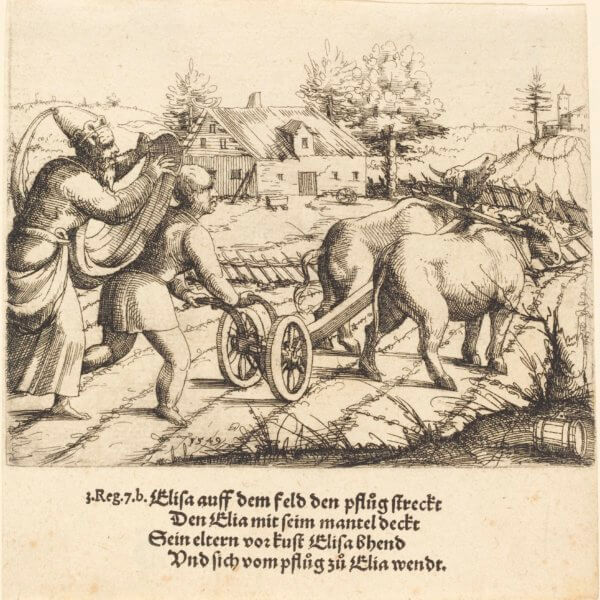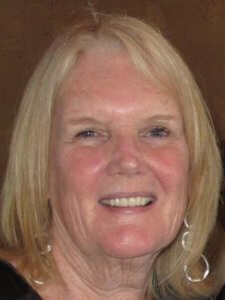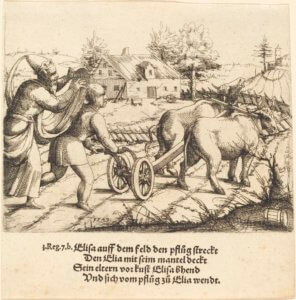
For Janet, on the Dobbs decision
 Saturday morning, in a beautiful service of love, homecoming, community, memories, music, and tears, Emmanuel said goodbye to Janet Hunt, our dear parishioner who died last month after a long struggle with Alzheimer’s disease. Janet loved Emmanuel Church, worshiping with us right up until the Sunday before she died. Janet was a powerful insurance executive, a committed, lifelong friend to scores of people from different walks of life, a woman of deep and active faith, and a loving force of nature. Janet was a fierce advocate for women’s rights, and Janet loved life.
Saturday morning, in a beautiful service of love, homecoming, community, memories, music, and tears, Emmanuel said goodbye to Janet Hunt, our dear parishioner who died last month after a long struggle with Alzheimer’s disease. Janet loved Emmanuel Church, worshiping with us right up until the Sunday before she died. Janet was a powerful insurance executive, a committed, lifelong friend to scores of people from different walks of life, a woman of deep and active faith, and a loving force of nature. Janet was a fierce advocate for women’s rights, and Janet loved life.
Dobbs Decision
 Friday morning, as I was praying and preparing to celebrate Janet’s life at yesterday’s service, the Supreme Court of the United States ruled in Dobbs v. Jackson Women’s Health Organization that the Constitution does not confer a right to abortion, overruling Roe v. Wade and upending 50 years of settled law. As Christians, and as human beings, we honor life. Life is a basic, elemental good. That understanding is the underpinning of our civilization and our very humanity. I think we’d be hard-pressed to find anyone who did not love and honor life as a basic human value among even the most passionate supporters of a woman’s unfettered right to choice in reproductive healthcare decisions.
Friday morning, as I was praying and preparing to celebrate Janet’s life at yesterday’s service, the Supreme Court of the United States ruled in Dobbs v. Jackson Women’s Health Organization that the Constitution does not confer a right to abortion, overruling Roe v. Wade and upending 50 years of settled law. As Christians, and as human beings, we honor life. Life is a basic, elemental good. That understanding is the underpinning of our civilization and our very humanity. I think we’d be hard-pressed to find anyone who did not love and honor life as a basic human value among even the most passionate supporters of a woman’s unfettered right to choice in reproductive healthcare decisions.
Yet we are not of one mind — as Christians, as Anglicans, as Episcopalians — and probably even as Emmanuelites — on how that basic, elemental, spiritual honor for life should be applied in highly complex moral contexts. As Washington National Cathedral Dean Randy Hollerith wrote early Friday, The Episcopal Church teaches both that “all human life is sacred,” and that there is a “tragic dimension” to all abortions.
Nonetheless, [The Episcopal Church … declares] an “unequivocal opposition” to federal and state laws that would “abridge or deny” any woman’s ability to make informed decisions about reproductive health. Choosing between good and evil is easy, but choosing between competing goods — like preserving the elemental good of life as between a mother and a fetus — is very difficult if it’s done with honesty and integrity, and with full attention to the nuances of individual context.
It’s difficult to say that forcing a woman to carry a child of incest, rape, human trafficking or other violence or oppression to term honors or preserves life, particularly if the birth of the child allows the oppression to continue. It’s difficult to say that forcing a woman to carry a pregnancy to term when the woman has just received the worst medical news of her life about either the fetus or her own health honors or preserves life if it results in the death of either. And it’s difficult to say that forcing a woman to carry an unplanned pregnancy to term honors or preserves life when it creates overwhelming support burdens for the mother and the family. These are really tough questions, and laws banning or limiting abortion are way too blunt an instrument for the thoughtful, reflective, prayerful, individual considerations needed in complex moral situations.
Interacting with Each Other
So where do we go from here, and how do we start? As a practical matter, with Roe v. Wade overturned and no constitutional right supported, we’re interacting with each other — our own local delegations and state legislatures. Your voice counts, and voting matters. Have you ever found yourself saying — out loud or to yourself in your head — I just don’t understand how he/she/they can think that way!! ? Anybody? I have said this, I have to admit. Out loud, even, though I hope after I hung up the phone following a difficult conference call to start summoning my better angels. If we do say to ourselves — or to others — I can’t understand how they can think that way, we can be pretty sure that they are shaking their heads over our thought process too. And that’s our opportunity for dialogue. So share and learn. Seek to understand why others feel as they do. Listen to each other with what Paul calls the fruits of the spirit: love, joy, peace, patience, kindness, generosity, faithfulness, gentleness, and self-control. You might find you have the same basic foundations for very different positions. And you each might change.
Elisha
 How do today’s readings guide us? Take it from Elisha. We catch up to him today at the moment of the prophetic transition from Elijah, his mentor, to Elisha. It’s a wonderful story, and we just get the end part today, as Elisha watches his teacher and mentor, Elijah, rising up to God with flaming chariots, wheels rolling in the air. The point is that it’s HARD to be a prophet. Speaking for God, interpreting and divining God’s Word and advising others in moral choices is dangerous, scary, and incredibly important business. You can’t do it from a safe distance. Or from behind a text you haven’t engaged fully — whether that text is an abortion law or scripture. Or by observing other people’s lived experiences without walking in their shoes.
How do today’s readings guide us? Take it from Elisha. We catch up to him today at the moment of the prophetic transition from Elijah, his mentor, to Elisha. It’s a wonderful story, and we just get the end part today, as Elisha watches his teacher and mentor, Elijah, rising up to God with flaming chariots, wheels rolling in the air. The point is that it’s HARD to be a prophet. Speaking for God, interpreting and divining God’s Word and advising others in moral choices is dangerous, scary, and incredibly important business. You can’t do it from a safe distance. Or from behind a text you haven’t engaged fully — whether that text is an abortion law or scripture. Or by observing other people’s lived experiences without walking in their shoes.
Life is messy, scary, sometimes violent, and holy, loving, and true. Elijah gave up everything, and Elisha was all in in a big way. Elisha had a huge stake in his farming operation. We can tell by what it took to unwind his business when Elijah turned up to recruit him as a prophet’s apprentice. Elisha is hard at work in his fields, working with 12 yokes of oxen. This is 24 oxen at a minimum, depending on how many oxen each yoke held. Elijah the Tishbite shows up — a hairy man with a leather belt around his waist, scripture tells us — and throws his coat over Elisha while he’s working. So much for prophetic politeness and ceremony. Nonetheless, and as invested as he is, Elisha accepts Elijah’s call. He slaughters all of his oxen immediately, burning the yokes themselves to boil water to cook the slaughtered oxen, then feeding the people with the meat. THEN Elisha became a prophet, following Elijah. Elisha had skin in the game.
Cost of Discipleship
And what did Jesus say about the cost of discipleship? You have to be willing to walk with me, Jesus said, and it’s not an easy road. Foxes have holes, and birds of the air have nests; but the Son of Man has nowhere to lay his head. THIS is the kind of committed engagement it takes to advise other people in complex moral and theological choices.
So today we hold this space for one another in this moment, and pray for each other. As Bishop Knisely wrote in an email to clergy Friday, we pray for those for whom this is hard news, and for those for whom it is welcome news. We pray in particular for those who will be most directly impacted by this decision across our country.
We might be angry. We might be relieved. We might be frightened. We might be confused. We might be numb. Or we might not think that this decision affects us. But it does.
This is a place to hold all of these feelings, and to recognize their complexity. There are as many different experiences, feelings, and convictions in this room as there are the number of us. Rest in what is for you; let go of what is not.
We pray, in the words of St. Francis of Assisi,
Lord, make us instruments of your peace.
Where there is hatred, let us sow love;
Where there is injury, pardon;
Where there is discord, union;
Where there is doubt, faith;
Where there is despair, hope;
Where there is darkness, light;
Where there is sadness, joy.
Grant that we may not so much seek to be consoled as to console;
to be understood as to understand;
to be loved as to love.
For it is in giving that we receive; it is in pardoning that we are pardoned; and it is in dying that we are born to eternal life.
Lord, let us be instruments of your peace. Amen.
